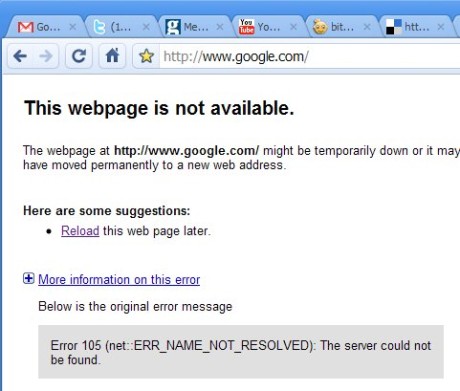Google dominates the web and is already making a big impact in the smartphone business with its Android operating system. The netbook computer is next in line, and Google is targeting this fast-growing market with Chrome OS, a stripped down operating system designed to do everything inside its own Chrome web browser.
Chrome OS is a year away from launch, but Google said it was talking to leading manufacturers and hoped to have systems on the market for the Christmas selling season. Today, however, it released an early version of the code to the open source development community.
At a press conference webcast from Mountain View, California, Google staff said their aim with Chrome OS was to make the computer work like a TV set, so the user turns it on and within a few seconds is on the web. Also, all the computer's applications and data are on the web, and users cannot install programs themselves. As with Android, it seems likely that Chrome OS will effectively feed traffic to Google's search engine, Gmail, mapping services, online applications, social network and other properties, where Google makes its money by showing advertisements.
Netbooks that run Chrome OS will not work if there is no internet connection, though they will be able to access data on USB memory sticks, if it can be viewed in a browser. "Everything that works in Chrome works in Chrome OS," said Sundar Pichai, a Google vice president of product management.
"There are some applications that are not available on the web. There are some things that this machine will not be able to do," said Sundar. "It's a companion device. Most users we expect to have another machine at home."
Chrome OS is based on open source software components, including the Linux kernel and the WebKit browser engine. Google says it plans to be a good open source citizen and feed its developments back to the development community.
However, Sundar said Chrome OS was not designed to run on existing hardware, though geeks handy with a screwdriver should be able to convert a netbook to run it. Google was "specifying reference hardware that it would support" with Chrome OS, including "specific wireless cards" for use with Wi-Fi internet connections, he said. Hard drives will not be supported, but cameras and other gadgets would be handled as storage devices. The company is still working on ways to offer printing.
Desktop operating systems that run Microsoft Windows and Linux can be built using tens of thousands of different components, and they can connect to tens of thousands of devices. Google is planning to simplify all of that by stripping down the operating system to work only with a browser and a defined number of hardware components.
Although Google won't manufacture hardware, it will have a very large degree of control over what hardware manufacturers can offer -- less than Apple, perhaps, but much more than Microsoft.
Against that, Google points out that other companies can take the open source Chrome OS code and use it develop a similar system that uses a different browser. They could also support different chips and hardware devices.
The idea of a browser-based operating system was floated by Netscape, when it dominated the browser software business in the 1990s. At the time it wasn't practicable because there were very few web applications, and users didn't have permanent broadband internet connections. Today, Google believes that web is powerful and available enough to support netbooks. In the future, it could become powerful and available enough for most users of portable and desktop computers.
At that point, there could be a rapidly diminishing need for traditional computer operating systems such as Microsoft Windows and Mac OS X, and for desktop applications such as Microsoft Office.
As Google recognises, there's nothing much that's new about Chrome OS, since it only does what users can already do with Chrome on their current computer. But as Sundar says: "We're trying to offer a different model of computing."




